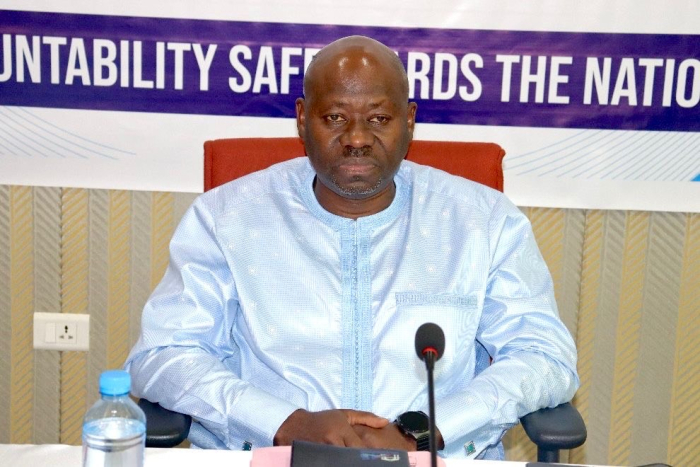
In a heated back-and-forth with committee members, Mr. Kanyi was taken to task over his company’s controversial valuation of vehicles formerly used by ex-president Yahya Jammeh.
The GTSC boss admitted that his team used the year of manufacture not the actual date of purchase or usage as the basis for depreciation, a move described by lawmakers as a fundamental breach of accounting principles.
“You cannot depreciate an asset based on the year it was manufactured,” Hon Kebba Lạng Fofana fired, visibly exasperated. “That’s completely wrong, an error in principle, application, and accounting.”
Mr. Kanyi, attempting to defend the decision, cited “missing information” about the actual purchase dates of the vehicles and claimed that in the absence of accurate records, his team relied on the year the buses were manufactured to estimate how much value they had lost.
“Information asymmetry limited us,” he said. “We did not know the year of acquisition. So we used what we had the manufacturing date to guide our depreciation.”
But lawmakers were not convinced. They pointed out inconsistencies in the GTSC’s own documentation, including fluctuating depreciation rates of 20% and 25%, confusion over actual market values, and apparent duplication of figures across different buses despite differences in age and condition.
Hon. Fofana then walked Mr. Kanyi through a hypothetical: “If you bought a bus in 2025 that was manufactured in 2018, when would you start depreciating it?”
“In 2025 when we start using it,” Kanyi answered.
“Then why did you apply depreciation from the year of manufacture in your report?” the lawmaker pressed.
Kanyi paused: “Well, based on the info. available.”
The Hon. Member labelled the report "compromised" and said it "does not pass the test" for accurate valuation.
He also questioned why the report’s remarks section failed to disclose that the year of manufacture, not acquisition, was being used potentially to mislead stakeholders.
“Your compromises diluted the authenticity of the report,” he snapped.
Beyond depreciation issues, the hearing also touched on the mysterious cannibalisation of state vehicles with parts like engines and alternators reportedly missing, sold off, or stolen. Kanyi admitted that some of these parts might have been sold as scrap, citing the black market value of materials like copper.
Despite the tension, Kanyi stood by his team’s efforts, suggesting that the vehicles’ market values though imprecise were based on expertise and conditions on the ground.
“Any bus that is 10 to 15 years old and still running will be around the value we gave,” he said. “This is not rocket science.”
Still, the committee was unimpressed, urging GTSC to submit any other valuation reports that might reflect a more accurate and accountable process.




